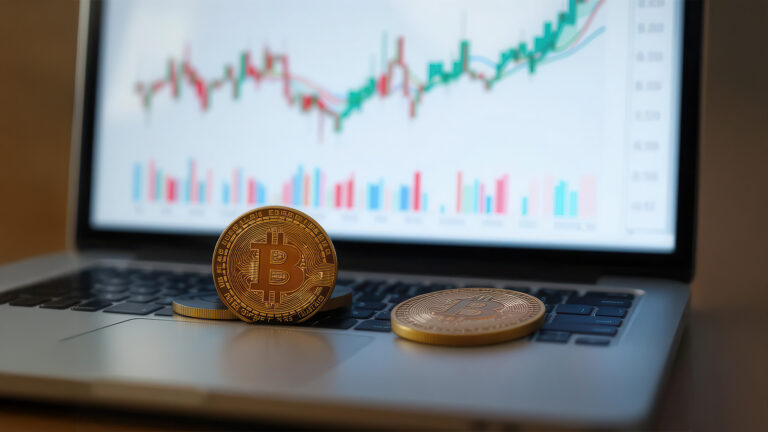Cryptocurrency finds a new home in emerging markets. In places where traditional banking systems are weak, digital coins offer a way to bypass hurdles.
People use crypto for everyday needs and savings in Latin America, Africa, and other regions.
With low fees and fast transactions, cryptocurrencies create new prospects in these regions. This article will explore how different countries adopt and regulate these digital assets.
Why Emerging Markets Prefer Digital Currencies
Emerging markets often face many challenges with their traditional banking systems. Banks can be unreachable, cumbersome, or charge high fees, making it difficult for people to access financial services.
Digital currencies offer a way around these problems – they offer easy access to money through digital wallets without needing a bank account.
Latin America and Africa experience high inflation rates that cause local currencies to lose value quickly.
Cryptocurrencies like Bitcoin help people protect their wealth by converting their money into crypto. This helps individuals and businesses withstand economic instability and safeguard their savings.
Transaction times with digital coins are significantly shorter than those with traditional methods. People no longer have to wait days for transfers to complete, which speeds up daily business and personal transactions.
For instance, those players who use crypto for gambling can deposit money and start playing almost instantly. Additionally, the gaming industry has seen a significant impact from digital currencies.
As people wonder what game has made the most money, they increasingly turn to cryptocurrency for in-game purchases and transactions, further illustrating the practical benefits of digital currencies in diverse sectors.
Low fees are another major draw for users in these regions. In situations where every penny counts, the lower transaction costs mean more money stays in their pockets.
Whether sending money to family, purchasing goods, or paying for services, the savings from reduced fees add up.
Everyday Uses for Crypto
Cryptocurrencies see daily use in many emerging markets. In these regions, people find practical applications for digital coins that improve their lives. These include:
- Remittances. Sending money home from abroad becomes easier with crypto. Low fees and fast transfers help families get funds quickly without losing much to transaction costs;
- Savings. In places with unstable currencies, saving money in cryptocurrencies is safe. Digital coins often keep value better than local money and protect savings from inflation;
- Shopping. Some local shops and online stores in Latin America and Africa take crypto payments. This provides an alternative to cash or cards, making shopping more flexible and convenient;
- Bill payments. Paying for utilities like electricity or water with crypto is possible in certain areas. This method can avoid the trouble of bank queues or high banking fees;
- Mobile top-ups. Topping up mobile phones using digital coins helps users stay connected without needing traditional banking services. It is also convenient, especially where phone use leads to more access to other services.

There are also not yet strict rules for cryptocurrencies in these regions, which allow free use and offer people more options. This freedom is especially useful when the banking system lacks reliability and efficiency.
Adoption Challenges in Different Countries
Emerging markets face problems with adopting cryptocurrencies. Many lack strong internet networks, which hampers access. Poor or unstable connections stop smooth crypto transactions. In some places, education about digital money is low. People do not trust what they do not know well. Rumors and myths spread fast, leading to fear or distrust of crypto.
Currency laws can change quickly in these regions. Sudden legal shifts bring confusion and affect crypto use. Governments might not back it; they could impose bans or restrictions without warning. Cybercrime is another issue. Without good security measures, people fall victim to fraud and hacks. This risk makes many wary of using digital coins.
Lastly, there is a shortage of local exchanges and services that support crypto trades. Most platforms are for major global currencies, which limits users’ options in these markets.
Regulatory Approaches to Cryptocurrencies
Different countries in emerging markets handle cryptocurrencies in various ways. Some governments see the benefits and choose to support digital coins, while others worry about risks like fraud and money laundering.
Nations such as Nigeria and Kenya take a flexible approach. They let people use cryptocurrencies freely, aiming to boost financial freedom and innovation. This can help businesses grow and create more jobs.
On the other hand, places like China have strict rules on digital currencies. They limit use and make it tough for people to trade or invest in them. This aims to protect citizens from scams but also hinders progress.
Other countries fall somewhere in between. India, for instance, has mixed signals on cryptocurrencies – sometimes supportive, sometimes restrictive. This creates uncertainty for users.
In summary, there is no one-size-fits-all method for regulation in these regions. Rules vary widely based on local needs and concerns. The future of cryptocurrency here looks different depending on each country’s stance.
Final Words
Cryptocurrency opens new doors in emerging markets. It helps people manage money better with faster, cheaper transactions. Despite some problems like weak internet and legal changes, many still use crypto to improve their lives. Each country handles it its own way, but digital coins keep making a big impact in these regions.
























